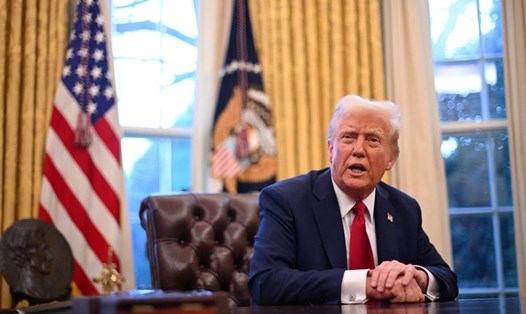According to Reuters, Hamas affirmed its commitment to implementing the signed terms, including exchanging prisoners according to the agreed roadmap.
The 42-day ceasefire is on the brink of collapse due to allegations of violations from both sides. Hamas said Israel has not fulfilled its commitment to increasing humanitarian aid, while the Tel Aviv government has warned that it will continue military operations if hostages are not released as agreed.
Currently, Hamas leader in Gaza, Khalil Al-Hayya, is in Cairo to discuss with Egyptian security officials. Egyptian and Qatari intermediaries are continuing to work to remove obstacles and maintain a ceasefire.
Hamas said the negotiations focused on allowing mobile homes, tents, fuel and medical equipment into Gaza. However, according to a representative of the Hamas government, so far only 73,000 tents out of a total of 200,000 tents needed to be moved. Meanwhile, Israel insists it has allowed 400,000 tents to be built in the area, but countries that have pledged to provide mobile homes have yet to do so.
Despite difficulties in the transportation of aid, international relief organizations confirmed that aid is still being delivered, despite many logistical obstacles. A representative of the Norwegian Relief Council said that the number of aid items has not yet met the urgent needs of Gazans, and stressed Israel's restrictions on some materials that can be used for military purposes.
Meanwhile, tensions have increased following controversial statements by some politicians about the relocation of Palestinians from Gaza, which was met with strong backlash from the Arab world.
To date, Hamas has returned 16 of the 33 Israeli hostages according to the initial agreement, in exchange for the release of hundreds of Palestinian prisoners. Hamas has also released five Thai hostages in addition to the initial agreement.
However, negotiations on the next phase, including the release of the remaining hostages and the possibility of Israel's complete withdrawal from Gaza, have yet to make significant progress. An Israeli delegation left Doha after two days of talks but could not reach a new agreement.
The risk of canceling the ceasefire agreement has prompted thousands of Israelis to take to the streets to protest, calling on the government to continue implementing the agreement to return hostages to safety.











